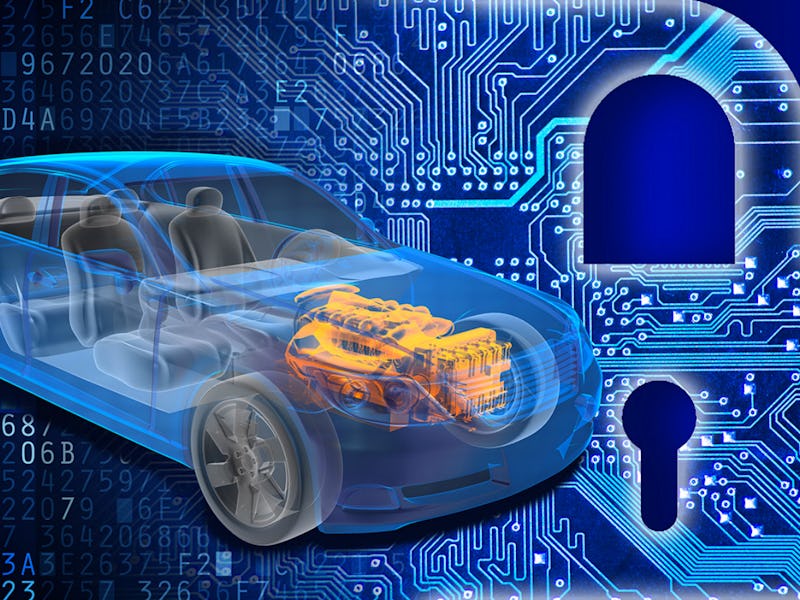
As cars become more and more advanced, they also become increasingly desirable targets for hackers. The National Highway Traffic Safety Administration (NHTSA) released a 22-page set of proposed federal guidelines on Monday in an attempt to help protect vehicles from malicious cyber-attacks in the future.
Cybersecurity is a major issue for increasingly computer-reliant cars. Thieves in Houston are hacking into cars to steal them, and the FBI is increasingly worried about hacking. In July of last year, a hacker was able to turn off the engine of a Wired writer’s car while he was driving it.
The guidelines, which will go into effect after a 30 day public review period, aren’t requirements so much as an emphatic request for automakers to incorporate cybersecurity into their car design — and to especially take a couple key steps. The administration wants automakers to make cybersecurity a top priority, and is encouraging them to train their workers better, carefully examine areas of the design that could be especially vulnerable to hackers, and to have a rigorous system of self-audits.
Other recommendations are for automakers to limit the amount of data a car can learn about its owner, for them to tightly control who has access to firmware, and to have a response and recall system in place for cyber attacks, if they occur.
“Vehicles are cyber-physical systems and cybersecurity vulnerabilities could impact safety of life,” the NHTSA wrote in its report. “Therefore, NHTSA’s authority would be able to cover vehicle cybersecurity, even though it is not covered by an existing Federal Motor Vehicle Safety Standard at this time.”
Hackers could, perhaps, make a car do this.
“In the constantly changing environment of technology and cybersecurity, no single or static approach is sufficient,” said NHTSA Administrator Dr. Mark Rosekind in a release. “Everyone involved must keep moving, adapting, and improving to stay ahead of the bad guys.”
Frankly, all of it seems like pretty good, common sense, and somewhat vague advice. The real story here is the government’s continued and growing focus on this issue. The NHTSA released guidelines for self-driving cars last month. Cars are tech, and the government recognizes that, and is starting to take steps to ensure that it isn’t used the wrong way — or by the wrong people.